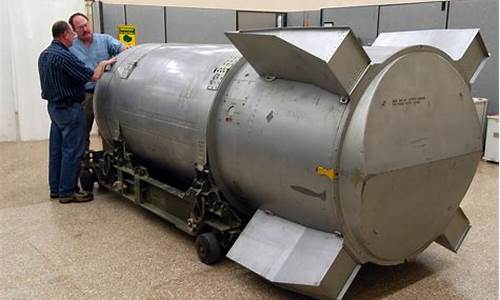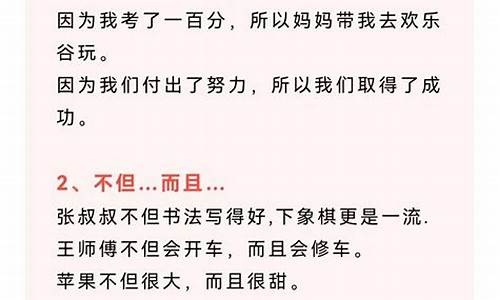您现在的位置是: 首页 > 成语之最 成语之最
bombardment-bombardments 翻译
tamoadmin 2024-10-26 人已围观
简介HBW的意思: 重型轰炸机联队(Heavy Bombardment Wing)? Heavy?读法 英?[‘hevi]? ? ?美?[‘hevi]? ? adj.?大(量)的;重的;沉重的;猛烈的例句1、Aluminium looks heavy but actually it is very light.铝看起来很重,实际上却很轻。2、The expenditure on new furnitu

HBW的意思: 重型轰炸机联队(Heavy Bombardment Wing)?
Heavy?读法 英?['hevi]? ? ?美?['hevi]? ?
adj.?大(量)的;重的;沉重的;猛烈的
例句
1、Aluminium looks heavy but actually it is very light.
铝看起来很重,实际上却很轻。
2、The expenditure on new furniture is too heavy.
购买新家具的花费太大了。
短语
1、heavy machine guns 重机枪
2、heavy money 大笔钱
3、heavy metal 重金属
扩展资料词语用法
1、heavy的基本意思是“重的”,通常指某物体很重,引申可指人在精神上感觉沉重,即“沉重的,沉闷的,忧郁的”,也可指天气“阴沉的”。引申还有“力量、数量或程度异常大的”“繁重的”“笨重的,笨拙的”“严厉的,无情的”“难消化的”等意思。
2、heavy在句中可用作定语、表语或宾语补足语。
3、heavy的比较级是heavier,最高级是heaviest。
词汇搭配
1、heavy rain 大雨
2、heavy sea 波涛汹涌的大海
3、heavy sky 阴沉的天空
总统先生、议长先生和尊敬的国会议员们:
我怀着十分谦卑而又骄傲的心情站在这演讲台上。 我谦卑,是因为在我之前,许多美国历史上伟大的建设者们都曾经在这里发过言;我骄傲,是因为今天我们的立法辩论代表了经深思的人类解放最纯粹形式。这是整个人类进程中的希望、热情和信仰的集中体现。我并不是作为任何一个党派的拥护者站在这里讲话的,因为这些问题太重要,以至都超越了党派的界线。如果要证实我们的动机是是正确的,如果要保障我们的将来,制定关于国家利益的最高纲领时就必须考虑到它们。我相信,当我说完我仅仅是为了陈述经深思熟虑而得出的一个普通美国公民的观点之后,你们会公平地接受它。在我生命将逝之年做这个告别演说,无仇无怨。在我心中只有一个目的:为我的祖国服务。
这些问题是全球性的,而且环环相扣,任何的顾此失彼做法都会使整体造成灾难。亚洲被普遍认为是通往欧洲的门户,同样的,欧洲也是通往亚洲的大门,二者是息息相关的。有人认为我们的力量不足以同时保住两个阵地,因为我们不能分散我们的力量。我想,这是我听到的最悲观的失败主义论调了。如果我们潜在的敌人能够把他的力量分在两条线上,那我们就必须与之抗衡……
除了指出这些一般常识外,我将把讨论集中在亚洲地区。在客观地估计那里的现状之前,我们必须了解亚洲的过去,了解导致她上升到今天这种局势的革命性的变化。长期遭受殖民主义势力的剥削而使亚洲人民没有机会获取任何程度的社会平等、个人尊严,也无法提高生活水平,就像被我们的菲律宾贵族政府所统治的那样。亚洲人民在战争中找到了机会,得以摆脱殖民主义的枷锁,而且现在有更多的新的契机摆在他们面前:政治独立带来的以前从未感受过的尊严和自重。亚洲有占世界一半的人口和百分之六十的自然资源,她的人民正迅速地加强一个新兴的力量,包括精神和物质两方面,藉此提高他们的生活水平,协调现代化的进步和他们特有的文化环境。不管你是不是坚持殖民主义的观点,这是亚洲前进的方向,她不会停步。这一点是世界经济防线转移、国际事务中心回归原点的必然结果。在这种情况下,我们国家在政治上必须与基本的革命形势一致,而不能无视殖民时代已经过时,且亚洲人民渴望开创自己的自由生活的现实,这一点十分重要。他们现在需要的是友好的指引、理解和支持,而不是专制的指挥。
我坚持保全他们,并希望能用最少的时间、最小的牺牲体面地结束这场野蛮的冲突。越来越多的流血让我感到深深的痛苦和焦虑。那些勇敢的人的形象在我的脑海中挥之不去,我将永远为他们祈祷。
我将结束我五十二年的军旅生涯。我在世纪之交之前就已加入军队,它满足了我孩童时所有的希望和梦想。自从我在西点的草坪上宣读誓言以来,这个世界已经经历了多次转变,童年的希望和梦想早已消失得无影无踪。但我依然记得当年那首流行的军歌中骄傲的叠句:一个老兵永不亡,他只是淡出舞台。就像歌中的老兵一样,我结束我的军旅生涯,只是淡出了人生舞台。一个力图像上帝指引的那样完成他的责任的老兵。再见
General Macarthur Speech "Old soldiers never die they just fade away"
Mr. President, Mr. Speaker and distinguished members of the Congress:
I stand on this rostrum with a sense of deep humility and great pride - humility in the wake of those great architects of our history who have stood here before me, pride in the reflection that this home of legislative debate represents human liberty in the purest form yet devised.
Here are centered the hopes and aspirations and faith of the entire human race.
I do not stand here as advocate for any partisan cause, for the issues are fundamental and reach quite beyond the realm of partisan considerations. They must be resolved on the highest plane of national interest if our course is to prove sound and our future protected.
I trust, therefore, that you will do me the justice of receiving that which I have to say as solely expressing the considered viewpoint of a fellow American.
I address you with neither rancor nor bitterness in the fading twilight of life, with but one purpose in mind: to serve my country.
The issues are global, and so interlocked that to consider the problems of one sector oblivious to those of another is to court disaster for the whole. While Asia is commonly referred to as the gateway to Europe, it is no less true that Europe is the gateway to Asia, and the broad influence of the one cannot fail to have its impact upon the other.
There are those who claim our strength is inadequate to protect on both fronts, that we cannot divide our effort. I can think of no greater expression of defeatism.
If a potential enemy can divide his strength on two fronts, it is for us to counter his efforts. The Communist threat is a global one. Its successful advance in one sector threatens the destruction of every other sector. You cannot appease or otherwise surrender to communism in Asia without simultaneously undermining our efforts to halt its advance in Europe.
Beyond pointing out these general truisms, I shall confine my discussion to the general areas of Asia...
While I was not consulted prior to the President's decision to intervene in support of the Republic of Korea, that decision, from a military standpoint, proved a sound one.
As I say, it proved a sound one, as we hurled back the invader and decimated his forces. Our victory was complete, and our objectives within reach, when Red China intervened with numerically superior ground forces.
This created a new war and an entirely new situation, a situation not contemplated when our forces were committed against the North Korean invaders; a situation which called for new decisions in the diplomatic sphere to permit the realistic adjustment of military strategy. Such decisions have not been forthcoming.
While no man in his right mind would advocate sending our ground forces into continental China, and such was never given a thought, the new situation did urgently demand a drastic revision of strategic planning if our political aim was to defeat this new enemy as we had defeated the old.
Apart from the military need, as I saw it, to neutralize the sanctuary protection given the enemy north of the Yalu, I felt that military necessity in the conduct of the war made necessary --
(1) The intensification of our economic blockade against China.
(2) The imposition of a naval blockade against the China coast.
(3) Removal of restrictions on air reconnaissance of China's coastal area and of Manchuria.
(4) Removal of restrictions on the forces of the republic of China on Formosa, with logistical support to contribute to their effective operations against the Chinese mainland.
For entertaining these views, all professionally designed to support our forces committed to Korea and to bring hostilities to an end with the least possible delay and at a saving of countless American and Allied lives, I have been severely criticized in lay circles, principally abroad, despite my understanding that from a military standpoint the above views have been fully shared in the past by practically every military leader concerned with the Korean campaign, including our own Joint Chiefs of Staff.
I called for reinforcements, but was informed that reinforcements were not available.
I made clear that if not permitted to destroy the enemy built-up bases north of the Yalu, if not permitted to utilize the friendly Chinese force of some six hundred thousand men on Formosa, if not permitted to blockade the China coast to prevent the Chinese Reds from getting succor from without, and if there were to be no hope of major reinforcements, the position of the command from the military standpoint forbade victory.
We could hold in Korea by constant maneuver and at an approximate area where our supply-line advantages were in balance with the supply-line disadvantages of the enemy, but we could hope at best for only an indecisive campaign with its terrible and constant attrition upon our forces if the enemy utilized his full military potential.
I have constantly called for the new political decisions essential to a solution.Efforts have been made to distort my position. It has been said in effect that I was a warmonger. Nothing could be further from the truth.
I know war as few other men now living know it, and nothing to me is more revolting.
I have long advocated its complete abolition, as its very destructiveness on both friend and foe has rendered it useless as a means of settling international disputes.Indeed, on the second day of September, 1945, just following the surrender of the Japanese nation on the battleship Missouri, I formally cautioned as follows: "Men since the beginning of time have sought peace. Various methods through the ages have been attempted to devise an international process to prevent or settle disputes between nations. From the very start workable methods were found in so far as individual citizens were concerned, but the mechanics of an instrumentality of larger international scope have never been successful.
"Military alliances, balances of power, leagues of nations, all in turn failed, leaving the only path to be by way of the crucible of war. The utter destructiveness of war now blocks out this alternative. We have had our last chance. If we will not devise some greater and more equitable system, our Armageddon will be at our door. The problem basically is theological and involves a spiritual recrudescence, an improvement of human character that will synchronize with our almost matchless advances in science, art, literature, and all material and cultural developments of the past two thousand years. It must be of the spirit if we are to save the flesh." But once war is forced upon us, there is no other alternative than to apply every available means to bring it to a swift end. War's very object is victory, not prolonged indecision.
In war there is no substitute for victory.
There are some who for varying reasons would appease Red China. They are blind to history's clear lesson, for history teaches with unmistakable emphasis that appeasement but begets new and bloodier war. It points to no single instance where this end has justified that means, where appeasement had led to more than a sham peace.
Like blackmail, it lays the basis for new and successively greater demands until, as in blackmail, violence becomes the only alternative. Why, my soldiers asked of me, surrender military advantages to an enemy in the field? I could not answer.
Some may say to avoid spread of the conflict into an all-out war with China. Others, to avoid Soviet intervention. Neither explanation seems valid, for China is already engaging with the maximum power it can commit, and the Soviet will not necessarily mesh its actions with our moves. Like a cobra, any new enemy will more likely strike whenever it feels that the relativity in military or other potential is in its favor on a worldwide basis.
The tragedy of Korea is further heightened by the fact that its military action is confined to its territorial limits. It condemns that nation, which it is our purpose to save, to suffer the devastating impact of full naval and air bombardment while the enemy's sanctuaries are fully protected from such attack and devastation.
Of the nations of the world, Korea alone, up to now, is the sole one which has risked its all against communism. The magnificence of the courage and fortitude of the Korean people defies description. They have chosen to risk death rather than slavery. Their last words to me were: "Don't scuttle the Pacific."
I have just left your fighting sons in Korea. They have met all tests there, and I can report to you without reservation that they are splendid in every way.
It was my constant effort to preserve them and end this savage conflict honorably and with the least loss of time and a minimum sacrifice of life. Its growing bloodshed has caused me the deepest anguish and anxiety. Those gallant men will remain often in my thoughts and in my prayers always.
I am closing my fifty-two years of military service. When I joined the army, even before the turn of the century, it was the fulfillment of all my boyish hopes and dreams.
The world has turned over many times since I took the oath on the plain at West Point, and the hopes and dreams have long since vanished, but I still remember the refrain of one of the most popular barracks ballads of that day which proclaimed most proudly that old soldiers never die; they just fade away.
And like the old soldier of that ballad, I now close my military career and just fade away, an old soldier who tried to do his duty as God gave him the light to see that duty. Good-by.









